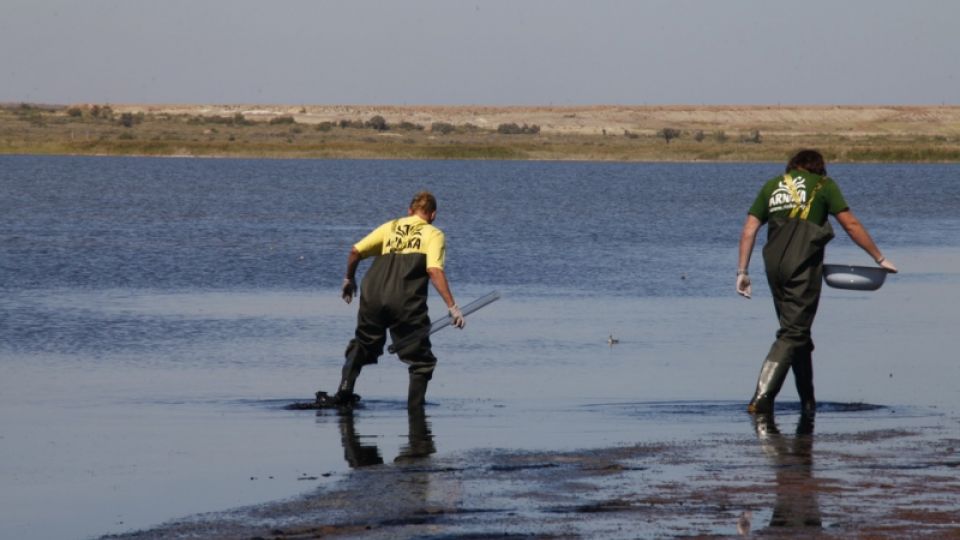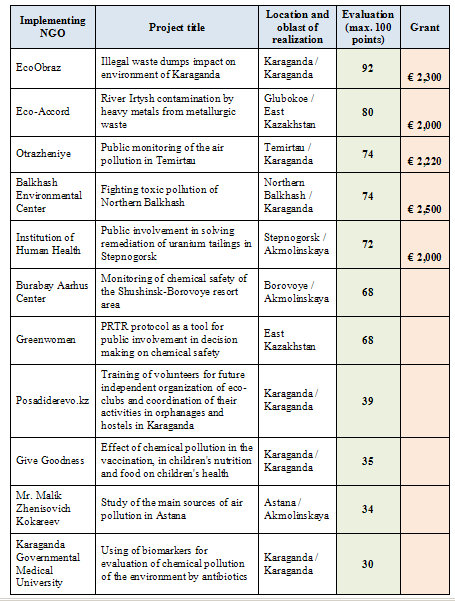Dust from abandoned uranium mines tailings, illegal waste dumps, poisoning of river Irtysh by heavy metals, contamination of lake Balkhash and severe air pollution. These are topics of the five projects that were selected for financial support within Small Grants Program, coordinated by Czech non-governmental organization Arnika and its partners EcoMuseum and Center for Introduction of New Environmentally Safe Technologies (CINEST) from Kazakhstan. Overall budget of EUR 12,000 is provided by European Union as a part of broader project "Empowering the civil society in Kazakhstan in improvement of chemical safety". Selected projects will help to solve environmental pollution threatening health of about 800 thousand people.
Overview of projects supported in the Small Grants Program:
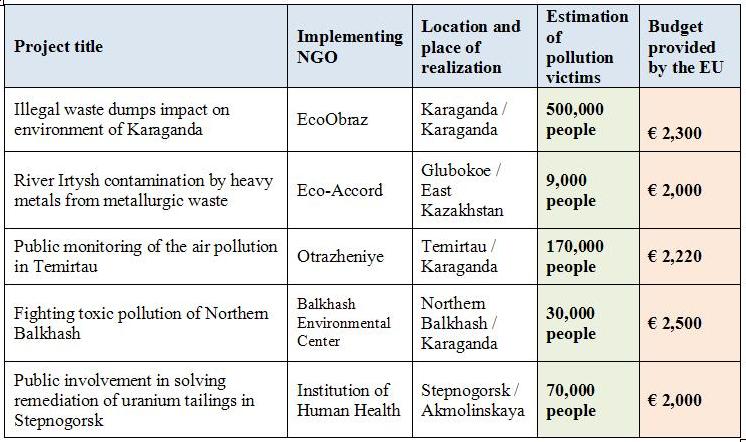
"Local people always know the local problems best. We believe in the power and creativity of active citizens, who want to protect their environment for life of themselves and their children. Our Small Grant Program gives the active citizens the last thing they need – money, so they can pay for experts, chemical analyses or information materials to involve their neighbors in decision making process, and to attract the attention of responsible state authorities," says Martin Skalsky, project coordinator of Arnika.
"Selection of the projects for financial support was very hard, as the budget is limited and each team chose a problem that deserves support. It makes us happy how many active citizens were able to prepare very good quality projects. During their implementation, our experts will provide local groups with additional help in planning their campaigns, publicity or seeking for the ways of tackling serious environmental pollution," stated Julia Kalmykova, small grants manager of EcoMuseum.
In total, 11 projects were submitted to the Small Grants Program from Karaganda, Akmola and East Kazakhstan oblasts. The requested sum of money exceeded EUR 30,000. Projects were assessed by the group of experts from the Czech Republic, Kazakhstan and Russian Federation.
For more information, please contact: This email address is being protected from spambots. You need JavaScript enabled to view it. of Arnika: mobile +420 606 727 942, or This email address is being protected from spambots. You need JavaScript enabled to view it., Small Grants Program coordinator in Kazakhstan: mobile: +7 7015 138 212, or This email address is being protected from spambots. You need JavaScript enabled to view it., Press and Information Officer at the EU Delegation to Kazakhstan, via phone +7 (7172) 97-11-48.
Attachment: Projects selected for support within Small Grants Program:
Public monitoring of the air pollution in Temirtau
Otrazheniye (Reflection) / Temirtau, Karagandy Oblast
Estimated number of pollution victims: 170,000
In Kazakhstan, every year 200 kg of chemical compounds per capita are emitted in the air. The main reasons of serious air pollution are outdated technologies, low efficiency of cleaning equipment, violation of technological procedures and lack of investments in environmental protection. One of the most polluted areas is city of Temirtau and its surroundings, where heavy industry, energy production and other emissions sources are concentrated for many decades. One of the biggest steelworks on the territory of former Soviet Union – now owned by multinational corporation Arcelor Mittal – is also located in the town. Information campaign will target all citizens of the city. Independent public monitoring will be established, so the air pollution will be examined by citizens themselves. Otrazheniye will bring in experience from other countries and lead a campaign to decrease pollution from industrial sources.
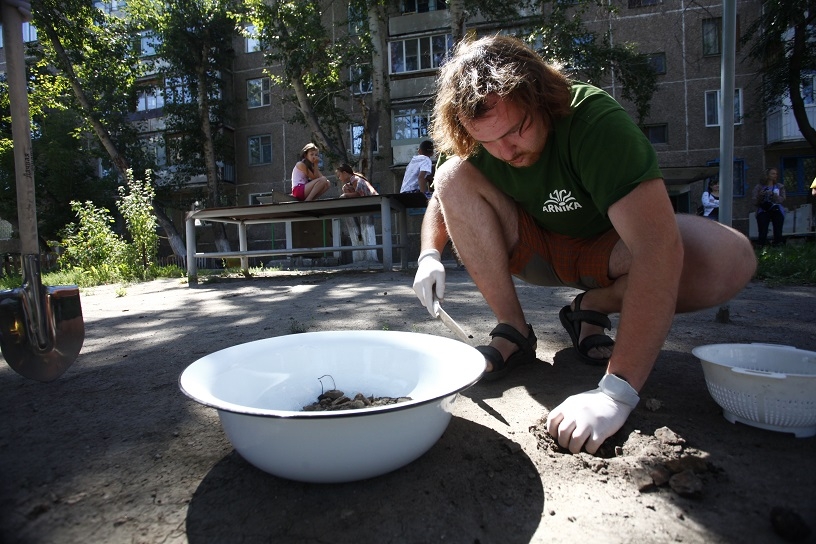 Taking samples of possibly contaminated soil at chlidren's playground in Temirtau. Photo: Ondrej Petrlik / Arnika
Taking samples of possibly contaminated soil at chlidren's playground in Temirtau. Photo: Ondrej Petrlik / Arnika
Illegal waste dumps impact on environment of Karaganda
EkoObraz / Karaganda, Karagandy Oblast
Estimated number of pollution victims: 500,000
Illegal waste dumps are one of the major environmental issues of the cities and suburbs. On illegal dumps, domestic waste is often mixed with hazardous materials – such as light bulbs, thermometers or batteries containing heavy metals that might pollute soil and water sources, and poses a threat to human health. Sometimes, also private companies dump their industrial waste illegally in the vicinity of cities, to reduce their costs. In the project, illegal waste dumps in Karaganda city and its surrounding area will be mapped by active citizens – volunteers. Interactive map will be created, accessible on-line, indicating basic characteristics of particular waste dumps. At selected hot-spots, chemical sampling of soil or water will be carried out, to identify source of waste and estimate hazards of pollution to the environment. Public awareness campaign should inform citizens about all risks and prevent creation of new illegal waste dumps.
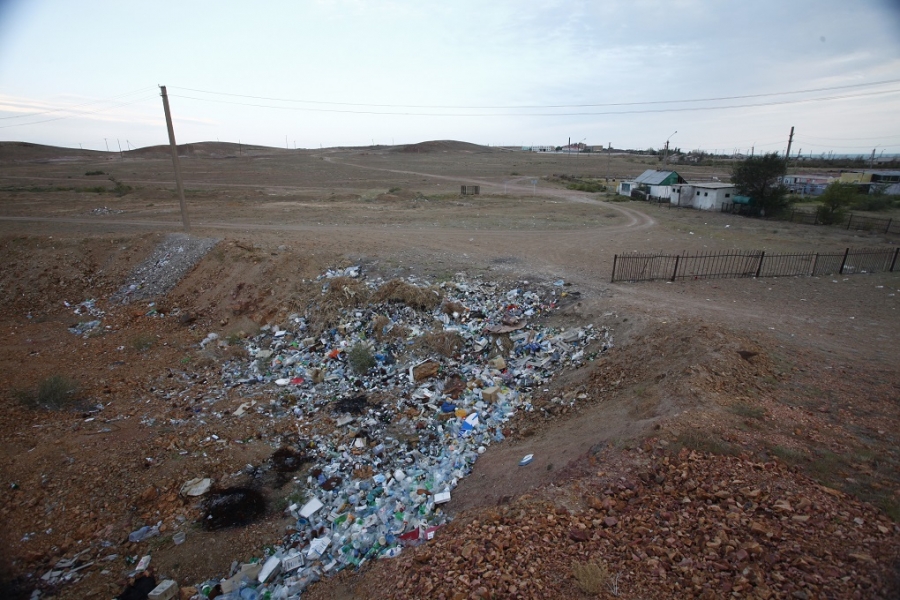 Illegal waste dump at cottage settement Fedorovka in Karaganda region. Photo: Eco Museum
Illegal waste dump at cottage settement Fedorovka in Karaganda region. Photo: Eco Museum
Public involvement in solving remediation of uranium tailings in Stepnogorsk
Institute of Human Health / Stepnogorsk, Akmolinsk Oblast
Estimated number of pollution victims: 70,000
Area of 500 hectares of dusty radioactive beaches – such is the condition of former Virgin Soil Mining and Chemical Corporation tailing pond. The largest in Kazakhstan and one of the largest in the world, it is located only 160 km from capital Astana. Tailing pond containing 45 million tons of fine radioactive dust can be "safe" only if it is constantly irrigated. In 1996, processing of uranium ore decreased, and irrigation became insufficient. Fine radioactive dust threatens populations of nearby towns, and also contaminates agricultural production that is exported to broader region. Objective of the project is to analyze the current situation and assess risk to the environment. Information campaign will be carried out to warn the citizens of the danger and educate them on health protective and preventive measures. Together with experts and state authorities, safe and feasible solution of uranium tailings remediation will be proposed and publicly discussed.
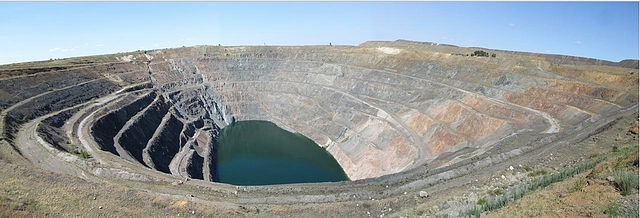 Uranium mine in Stepnogorsk.
Uranium mine in Stepnogorsk.
River Irtysh contamination by heavy metals from metallurgic waste
Eco-Accord / Glubokoye, East Kazakhstan
Estimated number of pollution victims: 9,000
In the vicinity of Glubokoye town, slag disposal of Irtysh Smelter Company are placed. The greatest danger to the environment pose three slagheaps located at the very bank of river Irtysh – only ten meters from the stream. Besides that, fine dust threatens health of people living in surrounding areas. Previous research shows that content of heavy metals in this dust exceeds threshold limit values significantly – for example, 25 times in case of arsenic, or 16 times in case of copper. Territory of the slag disposal is not even fenced. In 2010, monitoring of the pollution was carried out, and 500 citizens signed the petition demanding accelerated remediation of the problem. However, it did not happen till today. Project consists of information campaign focused on affected population. Series of public debates will be organized with participation of the citizens, experts, mass-media and state authorities, to discuss alternatives. Public-interest campaign will enforce real solution.
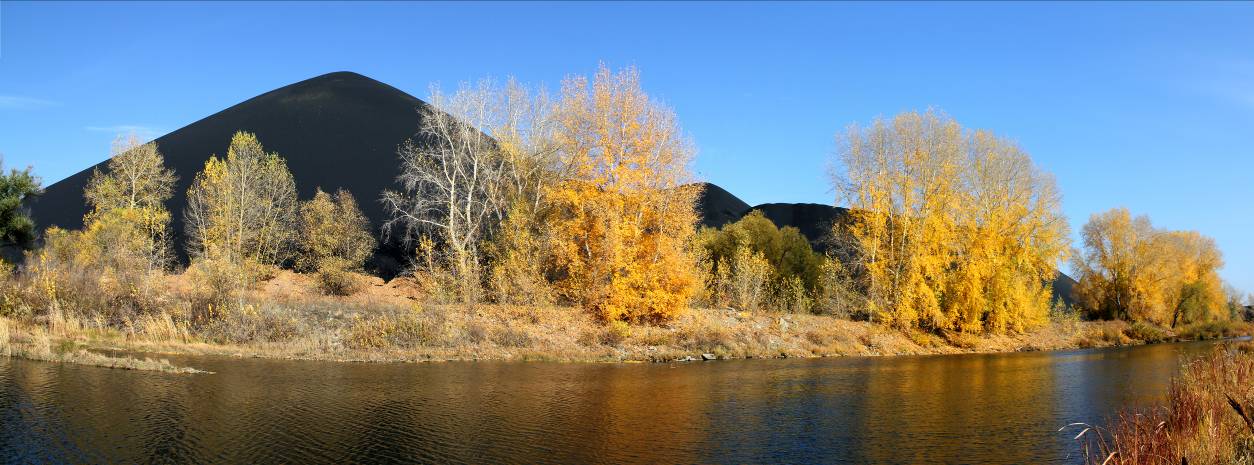 Slug disposal dumps at the bank of river Irtysh at Glubokoye village.
Slug disposal dumps at the bank of river Irtysh at Glubokoye village.
Fighting toxic pollution of Northern Balkhash
Balkhash Environmental Centre / Balkhas, Karagandy Oblast
Estimated number of pollution victims: 30,000 people
Balkhash – one of the largest lakes in Asia – demonstrates difficult conflict of the interests. On one side, citizens are dependent on fishing – and natural resources contribute significantly to the region's economy. Since 1930's, copper mining and smelting industry operates at the lake, creating its heavy pollution. In the time of Cold War, a number of military facilities (such as Daryal-type radar of early warning) added on the lake shore, containing wide range of hazardous materials. Part of the citizens is not aware of the contamination and loot, seeking for precious metals and construction materials. Project will inform people about health risk through information materials and seminars. Sources of pollution will be mapped, and possibilities of their remediation discussed among local citizens, experts and state authorities. Balkhash Environmental Centre will initiate preparation of Strategic Plan for Northern Balkhash and enforce progressive solutions.
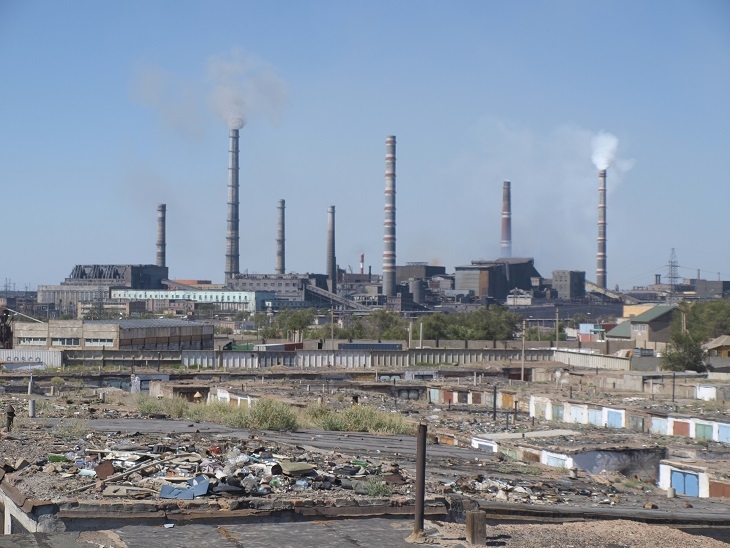 Kazakhmys - metallurgical factory in the city of Balkhash at the bank of the lake. Photo: Ondrej Petrlik / Arnika
Kazakhmys - metallurgical factory in the city of Balkhash at the bank of the lake. Photo: Ondrej Petrlik / Arnika



